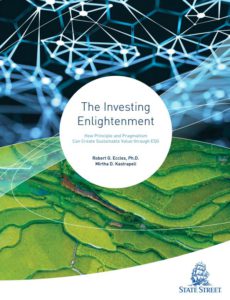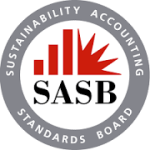
Last week Robert G. Eccles published a paper “The Investing Enlightenment: How Principle and Pragmatism Can Create Sustainable Value through ESG” with Mirtha Kastrapeli, head of Sustainable Investment Research at State Street’s Center for Applied Research (CAR). This paper was based on a global survey of 582 institutional investors evenly split between asset owners and asset managers and equity and fixed income, all of whom were or were planning to practice some type of ESG investing; and 750 retail investors, including some who were not practicing ESG investing.
The results were very interesting and strongly support the importance of integrated reporting. They found that the commonly cited barriers to ESG integration, a type of ESG investing in which there is a full and systematic incorporation of ESG risk and opportunities in the investment decision making process, among this group of investors are not as great as commonly believed, In particular, only a minority of them are concerned that incorporating ESG factors can hurt financial performance, very few (10 percent) see the fiduciary duty of fund trustees as precluding ESG integration (with around 45 percent seeing a trend of not doing so as a violation of fiduciary duty), and investors are realistic about the times frames (75 percent of institutional investors expect outperformance in three years or more and 45 percent in five years or more).


